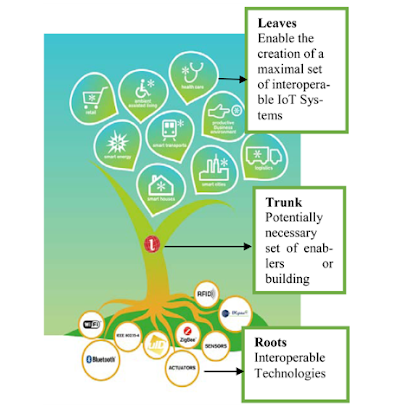How to Transform from Waterfall to Agile development
Changing your improvement interaction is hard. It can make creation delayed, make rubbing among workers, and poses troublesome inquiries of your general interaction. However, the ground that something has forever been done one way doesn't make that the most effective way. Advancement changes take time yet with regards to moving from cascade to Dexterous turn of events, that time merits the outcomes.
Lithe versus Cascade: An outline
Cascade has been around for the greater part of a long time yet while pondering programming, the explanation it's presently viewed as obsolete is that it misses the mark while you're taking a gander at current improvement projects. Waterful is a consecutive strategy that is intended for things to occur in a particular hierarchical request. The product advancement of today is considerably more cooperative and iterative, particularly in our half-breed workplace.
Some business agents might think expanded correspondence detracts from coding time. In any case, more correspondence prompts fewer suspicions and false impressions among pioneers and the improvement groups, prompting a superior cycle and item. Also, the ascent of the utilization of measurements like DORA, which underscore more limited runs and incessant joint effort, make it fundamental for designers to have the option to give and get input from colleagues and end clients continually.
The need for successive joint efforts restricts the requirement for extra errands being added during runs. This pays off tech obligation in light of everyday stand-up gatherings where groups stay in total agreement with their responsibility and cycle.
YOU CAN DOWNLOAD OUR Bit bit Manual for Light-footed Change HERE
Staying away from the "Wagile" stage in the project the board
Progressing your tech groups from cascade to Coordinated takes time. The genuine risk of the interaction, notwithstanding, isn't the length of the actual cycle. The potential for stalling out in the varying stage is known as Wagile.
It's conceivable that hierarchical pioneers could take a gander at past victories they've encountered with cascade and the ongoing triumphs they're finding in the market with Dexterous and figure they can have the smartest possible scenario with a "half and half" technique. In the event that cascade is perfect for repeatable, actual undertakings and Lithe as a guide for those imaginative, computerized ones, why not simply utilize both? Assuming you're trying to get the advantages of the two cycles, actually, you'll wind up with none. You'll stall out in the in-between.
This center ground is what we call Wagile. While you're progressing, your association ought to be in the center ground among cascade and Dexterous. You shouldn't remain there extremely lengthy or probably you risk falling away from the faith altogether to your obsolete cycles. A propensity should be laid out before it very well may be gotten to the next level. It must be the norm in your life before you can advance it and make it something else. You should give your groups a fair chance to lay out Coordinated; whenever it's laid out, you'll see improvement.
Moving toward Light-footed versus Cascade
While changing from Cascade to Nimble, you'll wind up in a three-stage process.
Stage 1: Understanding that Cascade is obsolete and choosing to change to Coordinated. Unpracticed IT pioneers and business donors might expect the change to Spry is essentially as straightforward as turning on a light switch. That everybody will be working in this new system and that things will be better from this point forward. This will be the inevitable result however it's not momentary.
Stage 2: Your groups will rapidly comprehend that the Coordinated progress requires some investment. Notwithstanding, unpracticed people will expect all that will gradually improve steadily, and they will ultimately be Nimble. We like to refer to this grade as "the way of trust."
Stage 3: Groups will quite often enter stage three similarly as quickly as they entered stage two. At the point when Spry progress begins, things will not gradually improve. To start with, they'll promptly deteriorate. In the event that you are encountering this at the present time, don't get disappointed. It happens to essentially every association.
Certain individuals might oppose change. Others might be ready yet need insight to execute their part of the nimble interaction. Changes can't occur in a vacuum so you'll probably run into run crunches and cutoff times, making groups return to what they know to take care of business.
These aren't things to be embarrassed about however if you don't watch out, they can make an extremely durable lose the faith. This third stage is the most basic and one of three results will happen:
Your authority leaves the Dexterous change and gets back to the cascade system.
Your initiative acknowledges you're in a Wagile state and put forth the attempt to totally relinquish the cascade and Coordinated crossover. This will permit/force groups to move to a Spry strategy.
Your initiative clutches the misguided thought that a crossover of cascade and Coordinated procedures is the best way ahead. This will unavoidably establish a low exhibition climate endlessly... until one of the other two results happens or the organization leaves the business.
For more informative Article Like this please Visit TechBeast Pakistan
Recognizing and settling Wagile
There are various side effects that can assist you with recognizing that your groups are at present caught in the Wagile stage. Our bit-by-bit Dexterous change guide will assist you with detecting these side effects and resolving them for your whole tech group. Perusing this blog is the initial step on your way to a more cooperative and dynamic improvement group.
Download our full manual to get bit by bit direction on the most proficient method to finish your Lithe change, recognize the side effects of the Wagile stage, and find our nine hints to succeed at this basic part of present-day programming advancement.


Comments
Post a Comment